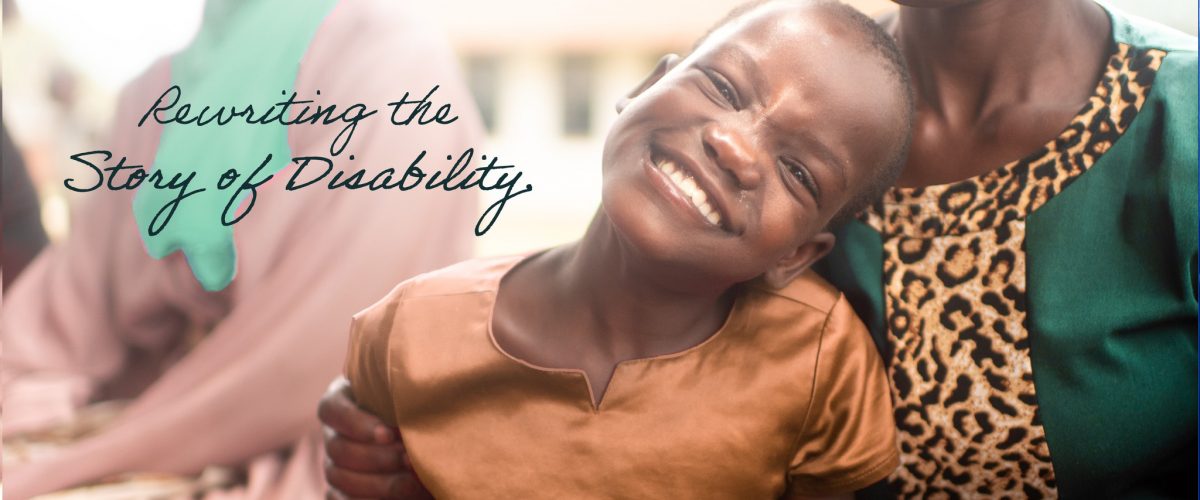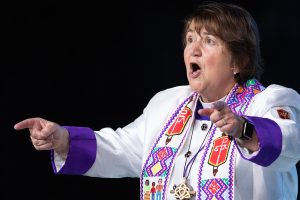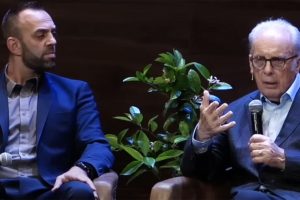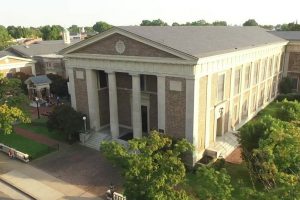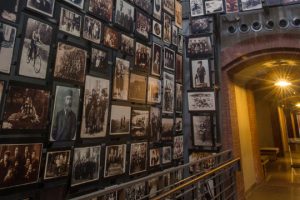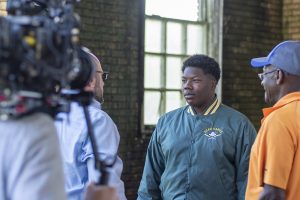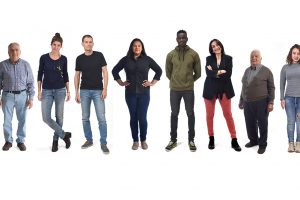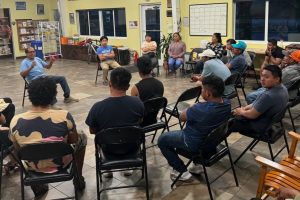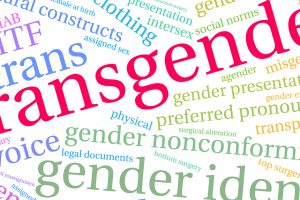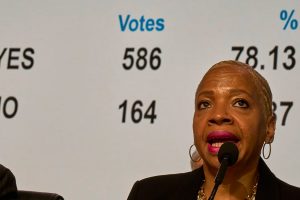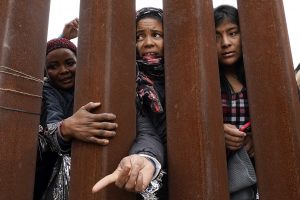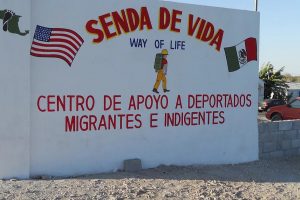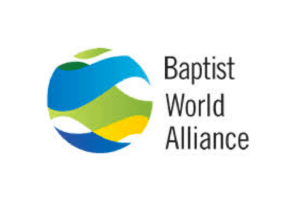A disproportionate share of disabled children — 10.4% of 240 million worldwide — live in Eastern and Southern Africa, according to a December 2021 UNICEF report.
“In some countries, more than 50% of people living with disabilities have experienced discrimination,” the report states. “Youth with disabilities in the region face multiple inequalities in their daily life which deepens discrimination and reinforces the vicious cycle of poverty.”
Ekisa Ministries helps address the challenges faced by children with disabilities in Uganda and Africa in general. The ministry, which is backed by both a U.S. and Africa board of directors, has been in the forefront of organizations hoping not only to change perceptions about disability, but also to help disabled children receive the love and attention they deserve.
In an interview, Liv Ricketts, Ekisa Ministries’ training and equipping manager, described how the organization approaches its work. The organization includes more than 110 staff members, including some who focus on changing perceptions about disabled children and helping reunite them with their biological families. It works in cooperation with the Ugandan government.
“We mainly get referrals from them, and then we work with local child welfare and probation and social work officers to make sure the kids we have in our care are actually … placed back into their families,” she said.
Ricketts addressed a range of issues, including Ekisa’s collaboration with other organizations in the childcare industry. She also offered tips to foreigners wishing to adopt children from Africa. The interview has been edited lightly for brevity and clarity.
How long has Ekisa Ministries existed, and what kind of work are they involved in?
Ekisa started in 2011 in Jinja, Uganda, as a children’s home. Several of our founders had volunteered at another children’s home, and they had skills for helping children with disabilities … and so they stepped in to start a home for those kids. They realized the need was really great and quickly transformed into a community-based program. We do still have a home, and our goal with that is to get those kids back into their families or into foster or adopted families. We have community programs where we offer all kinds of support services, like therapy, nursing care, social work, education, and … we also have a school called Ekisa Academy.
How are children received by Ekisa Ministries? Do people bring them to you?
In Uganda, … a lot of times, the communities think these kids are cursed. Or their parents have committed some kind of sin, which is why they have the disability. So, we get a lot of children referred to us through the government because their parents have either abandoned or neglected them. That’s mostly how it is. We do have a big population of parents who come (to us) to take their children just because they don’t feel like they have the necessary resources to raise their child. That led us to start our community program, where we kind of walk with the families, and we help them to not only get the services they need to take care of their kids — like therapy and medical and social work — but we also enlighten them so that they are able to understand the worth of their child and that their child is created by God.
In Uganda, … a lot of times, the communities think these kids are cursed.
Are you yourself based in Uganda or the United States?
We are fully based in Uganda. I am the only staff member that’s here in the U.S. I was in Uganda for three and half years and just recently moved back here. … Everyone else is there.
What does your job as a training and equipping manager entail?
In 2020, … we started having all kinds of people come to us asking us about our work, asking how they could work with kids with disabilities. Because this population is really overlooked and underserved, we will have people say, “Hey, we have this child in Kenya with a disability, can we send them to Uganda for you guys to work with?” Or we will have people ask, “Could you start an Ekisa in South Africa?” And so, we started this training and equipping department so that we can work with organizations all over the world and teach them how to work with kids with disabilities.
We help children’s homes learn about disabilities and how they can reunify children with disabilities back into their families. We work with organizations like Catholic Relief Services to offer training on how they can teach families to find value in their children. We wrote a curriculum that walks a parent through the journey of learning about their child and building relationships with them and ultimately becoming their biggest advocates. And so, this department exists so we can work with organizations and individuals around the world and teach them to better serve children with disabilities within their families.
How has the experience been for Ekisa working with other organizations in the childcare industry?
The relationship has been really helpful. We at Ekisa are very strong believers that it’s not a competition. There are a lot of organizations around the world, and we always say we will freely give whatever materials we have. We are always willing to share with anybody that’s willing to help kids with disabilities. We’ve had a great experience working with other organizations, other people serving vulnerable children.
There are stories of Westerners visiting Africa with intent to adopt children. How easy is it for them to do this? And what advice, if any, do you have for such people who choose to go to Africa to try to adopt children?
Regarding vulnerable children in Africa or East Africa in our context, we always encourage people to do their research ahead of time. Find out about the culture, find out about the organization you will be serving. Our biggest piece of advice really is, prepare as much as you possibly can and also go with the mindset of thinking, “Will I do this in my own country?”

Liv Ricketts
As you go to a different country where you are new and you don’t know the context and the culture so well, really think about how you should behave. Just keeping in mind: “Will I do this in my own country? And will I allow strangers to do this with my children at home?” That really gives the mindset to serve in the best possible way.
And what we really always encourage is building relationships with the people we work with. For us, that is the most meaningful connection. We have people come in and visit Ekisa to learn from our staff members … what they get to do on a daily basis. It’s really special.
We don’t focus on international adoptions. We really focus on getting kids back into their biological families, and when that’s not possible, usually we lean towards adoption or foster care by an aunt or uncle or grandparent. And when that’s not possible, usually we go to Ugandan foster care. And when that’s not possible, we sometimes look toward international adoption.
Some Africans view the intention of Westerners — whether Americans, Europeans or others visiting Africa with the intention of adopting children — as rather patronizing or a way of showing off and projecting Africa in poverty. What’s your take on that?
A lot of times, people have the desire to help, and people sometimes think they can come over and solve other people’s problems. A big misconception I see all the time is people believe the people in these countries — in Uganda, for example — are unwilling or can’t help themselves, so Westerners have to come in and solve the problems for them.
Don’t get me wrong. There are many problems in Africa, but there are problems everywhere. And especially when it comes to disability, there’s a huge stigma in Uganda. The solution to me and what we’ve seen at Ekisa is that when the communities step up and start to fight the stigma and isolation and the poverty, that’s when the real solution comes — not so much when Westerners come in and try to help.
So, Westerners have a part to play, and Christians specifically have a part to play, because God has called them to serve orphaned and vulnerable children. Christians have a really unique opportunity to fight for family care, because God created family. And so, they have a really unique privilege to be in the forefront of the fight for disability care in the world. For Westerners and Christians in general who want to help, the biggest thing would be to push for family care and also let those communities on the ground lead the charge and really just encourage them to do what they are created to do.
How challenging is it adopting children with disabilities? From Ekisa’s experience, how cumbersome is that?
In Uganda, right now, you are pretty much only allowed to adopt a child with a disability. And so, for Westerners if they want to adopt a child from Uganda, pretty much, the only condition is if they have a disability.
Is that the law in Uganda?
Yes. There can be exceptions, but you have to live in Uganda for quite a long time. At Ekisa, we push for community and local care for these kids. We really believe their identity is Ugandan, and we want them to grow up in those communities. International adoption can be a really great tool for kids who need specific medical care that’s only available in certain areas, but it always is our last resort. Ugandan foster care, Ugandan adoption and Ugandan reunification is the No. 1 priority, and international adoption will always be our last resort.
What’s the percentage of international adoptions from Ekisa since its beginning?
I have to look at the numbers, but I would say five.
So, your interest is majorly Africa?
We serve about 250 children every year, within their families. So, we offer support services like wrap-around care, occupational physical therapy, education, social work, medical care — all of those things to help kids stay in their families. We do a lot of family preservation work to ensure that kids never end up elsewhere. The goal is to get them back into families.
Are there challenges that Ekisa faces in Uganda and Africa?
Our biggest challenge is fighting the stigma people believe about children with disabilities. Many people just believe they are cursed. That they were not created by God, that they are a result of sin or something like that. So, our biggest challenge is just changing that mindset within our communities and helping people come to believe that these children are valuable, worthy of love and worthy of family.
How does Ekisa generate funds for its work?
Ekisa is fully funded by donations, by individuals who believe in our cause and want to help.
Looking forward, are there goals you think or hope Ekisa can achieve?
We are in the process of building a new campus where we hope we can serve many more children with disabilities and serve many more families that have kids with disabilities. We also want to use the campus to train organizations and other children’s homes how to work with these kids and how to get these kids back in the families. So, that’s our biggest hope — that these kids are seen as valuable and worthy, and they will be able to grow up in a loving family just like any other kid.
What do you think of Africa generally as a continent. … What is your wish for Africa?
In terms of family care, I feel like really great progress is being made, and I’m excited that Ekisa gets to be a part of it. My biggest wish is that children will continue to grow up in families, especially kids with disabilities.
Anthony Akaeze is a Nigerian-born freelance journalist who lives in Houston. He covers Africa for BNG.
Related articles:
Amid Sudan war and elsewhere, water scarcity threatens lives
A tragic tale of death on the Mediterranean Sea amid Tunisian and British migrant backlash
“Stop the Boats” bill passes UK Parliament, but plan to ship migrants to Rwanda ruled illegal


